In a previous post, we discussed finding your homeschool style or method. Unit Studies method is home education that integrates multiple subjects by thematic units. This philosophy of education utilizes hands on activities. It’s especially useful if you’re homeschooling multiple grade levels, so students can learn together like a one-room school house.

Unit Studies are Intergrated Learning
Unit studies incorporate the basic subjects into a thematic unit. Any unit can cover reading, writing, math, science, social studies and fine arts. Lessons are adaptable to different skill levels, various learning styles and multiple intellegences.
Thematic unit studies start with a primary subject area, such as Literature or History. This primary subject progresses in a sequential order from topic to topic. Each chapter ties in other subject areas with practical hands on activities. The students make meaningful connections between the various subjects.
The daily schedule is streamlined so the parent does not have to juggle separate textbooks for each child. There’s not enough time in the school day to cover everything anyway. Each student can explore the topic at their own ability level.
Spark of Curiosity
Unit Studies often start with interesting materials or a spark of curiosity. Something that you want to know more about so you will dig deeper into the topic. This method encourages you to chase the rabbit down the trail.
There’s an old joke that goes like this:
Question: How does a homeschooler change a lightbulb?
Answer: First, I check three books on electricity out of the library, then the kids make models of light bulbs, read a biography of Thomas Edison and do a skit based on his life.
Next, we study the history of lighting methods and practice dipping our own candles.
Then, we take a field trip to the store where we compare types of light bulbs as well as prices and figure out how much change we’ll get if we buy a pack of bulbs for $1.99 and pay with a five dollar bill.
On the way home, a discussion develops over the history of money and also Abraham Lincoln, as his picture is on the five dollar bill.
Finally, after building a homemade ladder out of branches dragged from the woods, the light bulb is installed. And there is light.
While this joke may be an exaggeration, the goal is clear. To develop a love of learning that carries you throughout life.
Hands-On Activites To Do:
Most unit studies include some practical hands-on activities to include in the course of study. These activities are meant to be engaging and interesting; not boring.
- Lapbook: A lapbook is a collection of mini-books, pockets, spinners, and fold outs in a file folder that fits in the child’s lap. The project is a fun way to review the learning again and again. Usually is more picture based for young learners.
- Notebooking: A collection of maps, copywork, and reports in a 3-ring binder. Similar project to the lapbook, for a fun way to review the learning. Usually includes more writing activities geared for older learners.
- Timelines and Maps: The topics may not be presented in chronological or geographical order. So, it is beneficial to create personalized markers for connections to time and location.
Unit studies can also be great for getting started homechooling. Before you choose a year-long curriculum package, you could start out with some topical studies. Unit Studies are also great for change of pace to take a break from the routine. During holidays or vacations, you could use for short-term.
A separate math curriculum is recommended for the unit study approach. You might choose unit studies as your primary method for long term. Or you might find it useful for special projects.
Is Unit Study approach right for you?
Try this Unit Study/Book Study:
Science Unit Studies for Homeschoolers and Teachers






 Click here for more ideas from UnitStudy.com (affiliate referral)
Click here for more ideas from UnitStudy.com (affiliate referral)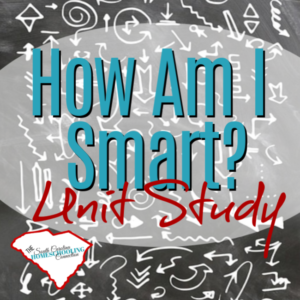


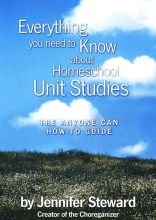






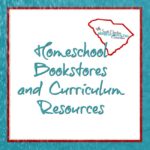 Homeschool Bookstores and Curriculum Resources
Homeschool Bookstores and Curriculum Resources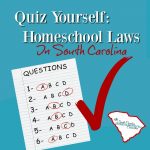 Quiz Yourself: Homeschool Laws in SC
Quiz Yourself: Homeschool Laws in SC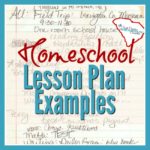 Lesson Plan Examples
Lesson Plan Examples Is Kindergarten Optional?
Is Kindergarten Optional?




[…] study approach: Unit studies, often known as thematic studies, combine all or most disciplines into one overarching theme. These […]